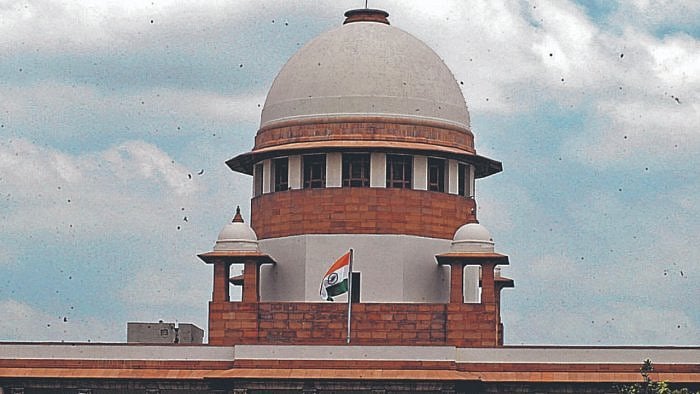
The Tamil Nadu government told the Supreme Court that there is nothing illegal in the acts of missionaries spreading Christianity since Article 25 of the Constitution guarantees every citizen the right to propagate his religion.
"The acts of missionaries spreading Christianity by itself cannot be seen as something against law. But if their act of spreading their religion is against public order, morality and health and to the other provisions of Part III of the Constitution, it has to be viewed seriously," the DMK government said.
In a written response to a PIL filed by advocate Ashwini Kumar Upadhyay, the state government maintained that there has been no incident of forceful conversion in the past many years in the state and the petitioner's allegations are related to some instances in Hindi belt areas.
In their affidavit, the state government asserted that the citizens are at liberty to choose the religion they want to follow.
"The Constitution does not give a fundamental right to any person to turn another man into one's own religion. But it gives a right to any person to propagate his religion. Likewise, the Constitution does not prevent any person from getting converted to the religion of his choice. The citizens of the country should be allowed freely to choose their religion and it would not be appropriate for the government to put spokes to their personal belief and privacy," it said.
The M K Stalin government contended, however, the state should have the responsibilities to take measures against persons who deliberately and maliciously intend to outrage the religious feelings of any class by insulting their religion or religious beliefs.
"According to the fundamental right, every citizen has the opportunity to practice and spread his religion peacefully. The right to have faith in a particular religion can be traced under Article 21 of the Constitution and it is an inviolable right," it maintained.
Calling the plea by Upadhyay as "religiously motivated petition", the state government also opposed the idea of introducing any anti-conversion law, saying those are prone to misuse against minorities.
"There is no data on convictions under the various anti-conversions laws of the states," it claimed.
On the petitioner's contention that means like "intimidation, threat, deceivingly luring through gifts and monetary benefits" were used for conversions, the state government said those allegations are related to some incidents only in certain tribal areas in Madhya Pradesh, Odisha and India's Hindi belt and, it did not apply to Tamil Nadu.

